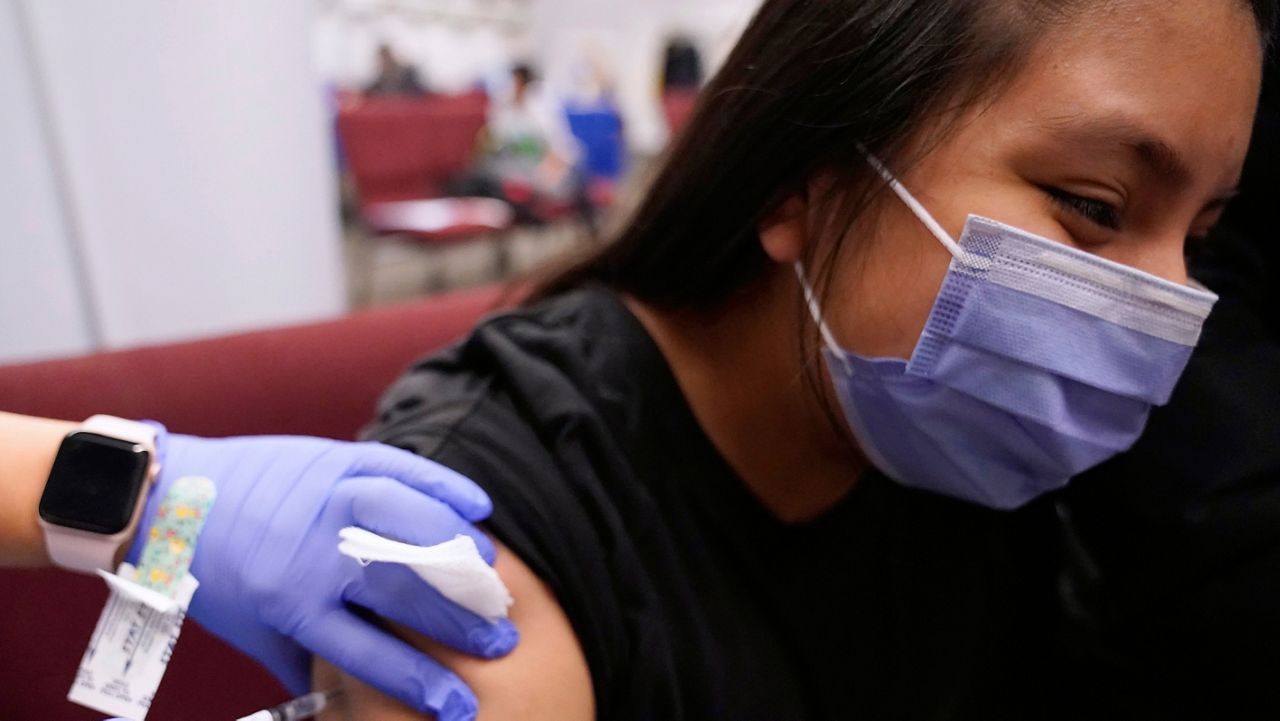As pediatric COVID-19 hospitalizations surge to near-record levels, the Centers for Disease Control (CDC) released studies which demonstrate the importance of vaccinating children against the coronavirus.
One of the studies released by the CDC on Thursday showed that serious adverse reactions in kids 5-11 to Pfizer-BioNTech's COVID-19 vaccine were very rarely reported. In safety reports submitted by more than 42,000 children in that age group, the vast majority experienced mild to moderate side effects.
Between early November and mid-December, Vaccine Adverse Event Reporting System (VAERS) – the United States' vaccine safety monitoring system – received 4,249 reports of adverse events after vaccination. Of that figure, 4,149, or 98%, were not serious.
Of the group, there were 11 confirmed reports of myocarditis, an inflammation of the heart muscle that has been linked in rare instances to COVID-19 vaccines; of that figure, seven had recovered, and four were recovering at the time the report was published.
The study detailed two deaths – girls aged 5 and 6 – but noted they had "complicated medical histories and were in fragile health before vaccination."
"None of the data suggested a causal association between death and vaccination," the authors of the study wrote, but noted their deaths are "under review."
A second study, which was conducted between July and August of 2021 across six hospitals in the U.S., found that among children under 18 hospitalized for COVID-19, fewer than 1% of those eligible were fully vaccinated.
"This study demonstrates that unvaccinated children hospitalized for COVID-19 could experience severe disease and reinforces the importance of vaccination of all eligible children to provide individual protection and to protect those who are not yet eligible to be vaccinated," the authors wrote.
It's worth noting that this study was conducted while the delta variant was the dominant coronavirus strain in the U.S., well before the current uptick in pediatric hospitalizations from COVID-19.
Four of the six hospitals were located in the southern U.S.: Arkansas, Florida, Louisiana and Texas. The others were in Illinois and Washington, D.C.
Of the more than 700 children studied, nearly 30% were admitted to the intensive care unit, and 1.5% of them died. More than half of the patients required oxygen support, and nearly 15% required medical ventilation.
Roughly two-thirds of the patients (67.5%) had at least one underlying medical condition, the most common of which was obesity (32.4%).
The third study released Thursday showed that the Pfizer-BioNTech COVID-19 vaccine was highly effective at preventing coronavirus in kids 12-17.
Looking at a group of 243 adolescents in Arizona tested for COVID-19 for 19 consecutive weeks, conducted between the end of July and early December, the vaccine was 92% effective in preventing coronavirus.
"These findings from a real-world setting indicate that 2 doses of Pfizer-BioNTech vaccine are highly effective in preventing SARS-CoV-2 infection among Arizona adolescents," the authors of the study wrote. "CDC recommends COVID-19 vaccination for all eligible persons in the United States, including persons aged 12–17 years."
The studies come as children being hospitalized with COVID-19 are approaching near-record levels.
During the week of Dec. 21-27, on average, 334 children 17 years of age and younger are being hospitalized with COVID-19, according to data from the Centers for Disease Control and Prevention. That’s an increase of 58% from the week prior.
More than 8 million doses of the Pfizer-BioNTech COVID-19 vaccine have been given to kids 5-11, according to the CDC. According to multiple reports, the FDA is expected to authorize booster doses of Pfizer-BioNTech’s COVID-19 vaccine for kids 12-15 in the coming days.
Spectrum News' Ryan Chatelain contributed to this report.



